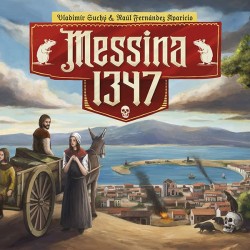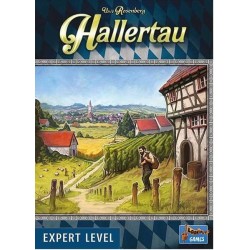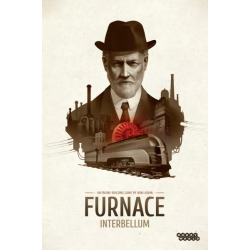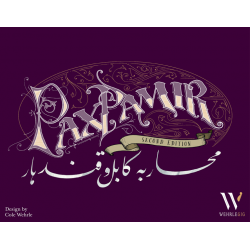No products in the cart.
Active filters
Unconscious Mind
In the early 1900s, the Austrian neurologist Sigmund Freud established a revolutionary theory called psychoanalysis, related to the study of the unconscious mind. As his work took hold, supporters met at Freud\'s apartment every Wednesday to discuss psychology and dream symbolism. This group—the Wednesday Psychological Society—marked the beginning of the worldwide psychoanalytic movement. As a member of this society, you aim to formulate new therapeutic techniques, establish a practice, grow your clientele, and become Freud’s most distinguished contemporary. To best accomplish this, you’ll need to share insights, discuss ideas with peers, and publish theories. And to stay invigorated, you’ll likely need some coffee—lots of coffee.
Messina 1347
In 1347, merchant galleys from the Crimean Peninsula arrived in Sicily and docked at the ancient port of Messina. The galleys had rats. The rats had fleas. And the fleas carried a plague that would come to be known as the Black Death. Over the next four years, in cities across Europe, half the population would die.
Diplomacy
A game of negotiation, cunning, and deceit. Through making deals and forming alliances, you\'ll expand your empire over pre-World War I Europe. You\'ll have to watch your back as you make and break deals, un-hatch traitorous plots, negotiate, and outwit others to gain dominance of the continent.
This is the 2022 edition
Hallertau
Take a step into the world\'s biggest contiguous hop-growing region, Hallertau. A strategy game by Uwe Rosenberg where players are leaders of a small town, attempting to improve the craft workshops and to raise the town\'s wealth by growing hops.
Furnace
Furnace is an elegant engine-building euro game where the players take on the roles of 19th-century capitalists building their industrial corporations and aspiring to make as much money as they can by purchasing companies, extracting resources, and processing them in the best combinations possible.
Furnace: Interbellum
Furnace expands into the twenties and thirties of the twentieth century — the interwar period known as the interbellum. In this expansion, you will find new Company cards and Capitalists, new abilities, Manager tokens, variable Capital discs, a set of components for a fifth player, and new Agents for two-player and single-player games. All of this exists within beautiful industrial buildings and structures from the epoch of Art Deco, Constructivism, and Bauhaus.
Pax Pamir: Second Edition
In Pax Pamir, players assume the role of nineteenth century Afghan leaders attempting to forge a new state after the collapse of the Durrani Empire. Western histories often call this period "The Great Game" because of the role played by the Europeans who attempted to use central Asia as a theater for their own rivalries. In this game, those empires are viewed strictly from the perspective of the Afghans who sought to manipulate the interloping ferengi (foreigners) for their own purposes.














